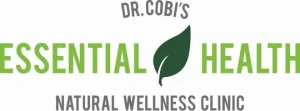Recent studies have surfaced previously unknown facts about sunscreens, such as the harmful chemicals in them which can be a contributory factor in causing skin cancer. This leaves consumers confused as to the safety of using sunscreen at all. On May 1, Hawaii became the first state to pass a bill banning the sale of sunscreen containing chemicals believed to harm coral reefs.
The legislation prohibits the distribution of sunscreens containing the chemicals oxybenzone and octinoxate that scientists have found contributes to coral bleaching when washed off in the ocean.
In 2014, the Environmental Working Group (EWG) published their guide to safe sunscreens. In the process, they reviewed over 2000 sunscreens currently on the market including over 257 different brands. The EWG concluded from their study that over 75% of the sunscreens contained toxic and carcinogenic (cancer causing) chemicals. Visit the EWG website on sunscreen »
Despite the fact that more and more people are using sunscreen, every year over 2 million Americans are diagnosed with skin cancer. The world-wide statistics show that the incidence of skin cancer is on the rise globally!
The harmful and toxic ingredients to avoid in sunscreens are as follows:
☠ Cinoxate
☠ Dioxybenzone
☠ Homosalate
☠ Menthyl anthranilate
☠ Methoxycinnamate
☠ Octocrylene
☠ Octyl salicyclate
☠ Oxybenzone
☠ Para amino benzoic acid
☠ Parabens
☠ Phenylbenzimidazole
Sunscreens can protect the skin in one of two ways: either as a mineral barrier or as a chemical one.
Mineral sunscreens typically include ingredients like zinc oxide or titanium dioxide which create a physical barrier to protect the skin from the sun. Mineral sunscreens do not breakdown in sunlight, are not usually absorbed (and therefore do not disrupt the body’s hormones), are not allergenic and are more effective at blocking UVA rays than non-minerals. These sunscreens are a good choice for children and according to the EWG, they have the best safety profiles of the choices in North America.
Chemical sunscreens use one or more chemicals including oxybenzone, avobenzone, octisalate, octocrylene, homosalate and octinoxate which all create a chemical barrier.
** The EWG reports that chemical sunscreens act as endocrine disruptors through estrogenic activity. They also cause issues with thyroid function and other hormonal processes throughout the body.
Sunscreen ingredients are absorbed through the skin and into the blood stream. Once in the blood, these toxins release free radicals which act like estrogen and disrupt the hormones. They are also highly allergenic and irritating to the skin. In regard to cancer, the ingredient retinyl palmitate, which is a Vitamin A derivative, was shown to speed up the growth of cancerous cells by 21%.
Based on these statistics, it is no wonder that savvy consumers are seeking alternatives to conventional sunscreens. This trend will continue as more research reveals the increasingly harmful effects of toxic sunscreens.
Completely avoiding the sun is not the answer because just 20 minutes of unprotected sun exposure is enough time for your body to naturally generate enough Vitamin D3. The sun is the very best source of Vitamin D3!
Vitamin D3 has been one of the most researched nutrients over the past 5 years and it has been shown to naturally help boost the immune system, help fight cancer and improve moods.
Here are some tips to avoid overexposure from the sun:
- The best sunscreen is a hat and a shirt. Cover up with light clothing before you get burnt!
- Be prepared and wear natural sunscreen if you’re going to stay out for a long period of time.
- Eat a diet high in anti-oxidants to protect your skin on an ongoing basis.
- If you experience a sunburn, use a mixture of aloe, coconut oil and vitamin E on your skin.
The following is a list of safe natural mineral sunscreens according to the EWG:
✓ Alba Botanical Mineral Sunscreen
✓ Badger Mineral Sunscreen
✓ Babyganics Sunscreen or spray sunscreen
✓ All Terrain KidSport SPF30 Oxybenzone-Free Natural Sunscreen
✓ Blue Lizard Australian Sunscreen
✓ Bull Frog Sunscreen
✓ Burt’s Bees Sunscreen Stick
✓ California Baby Hypoallergenic Sunscreen
✓ JASON Mineral Sunscreen
✓ Naked Turtle Mineral Sunscreen with Aloe
✓ Sunology Natural Sunscreen
✓ Raw Elements Sunscreen
✓ The Honest Company Sunscreen
✓ Thinkbaby Safe Sunscreen

